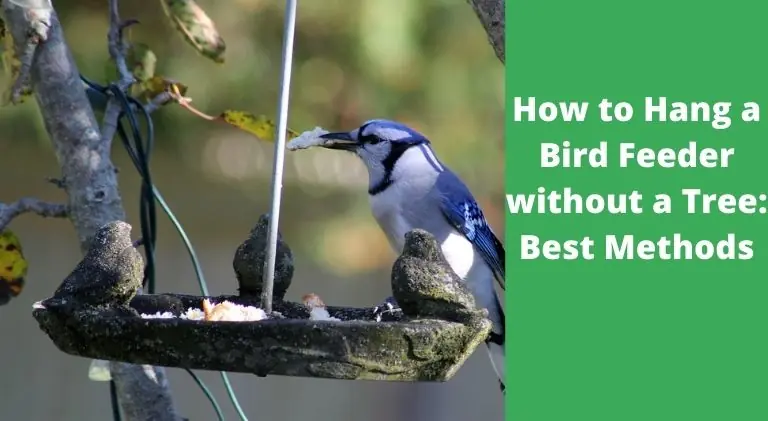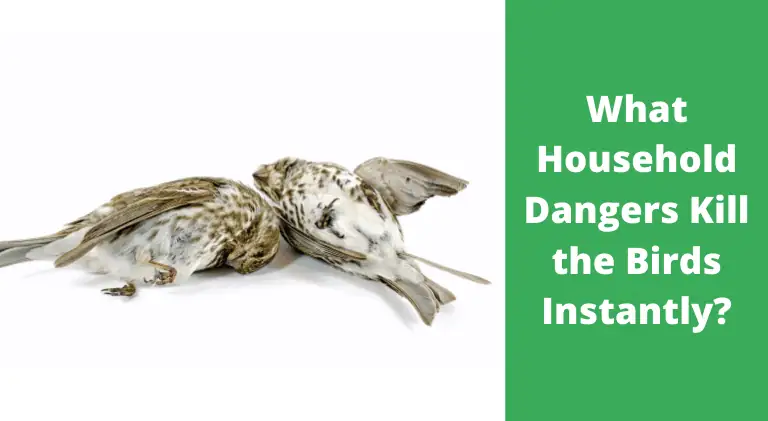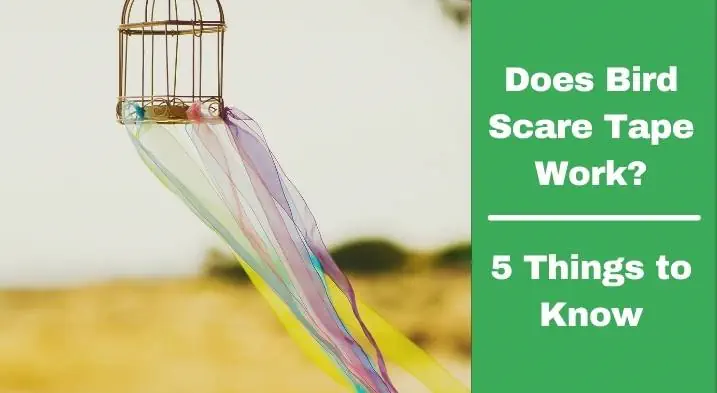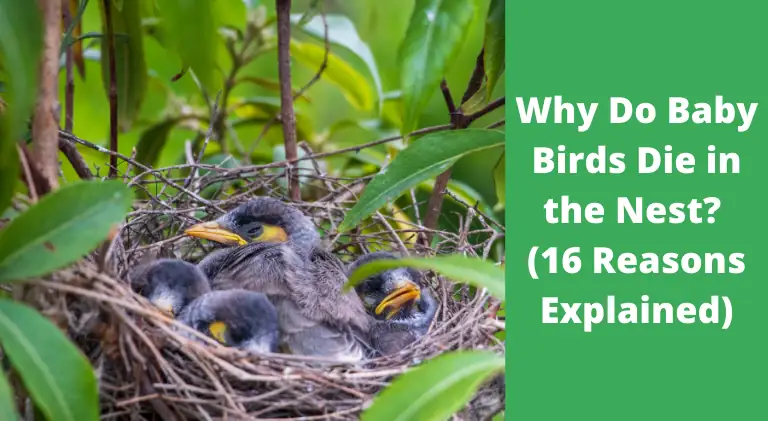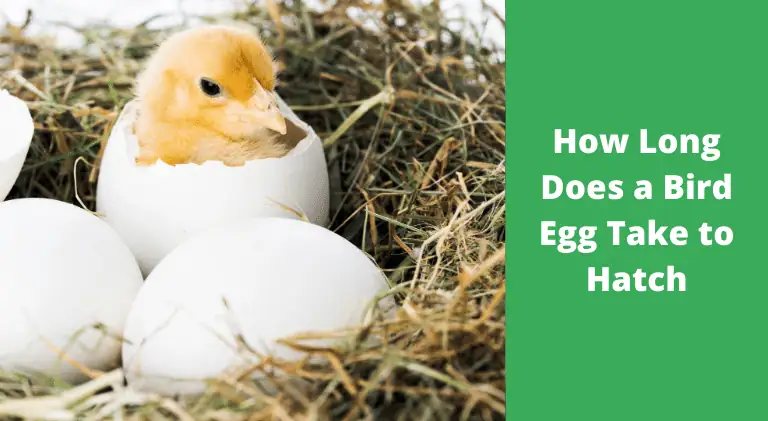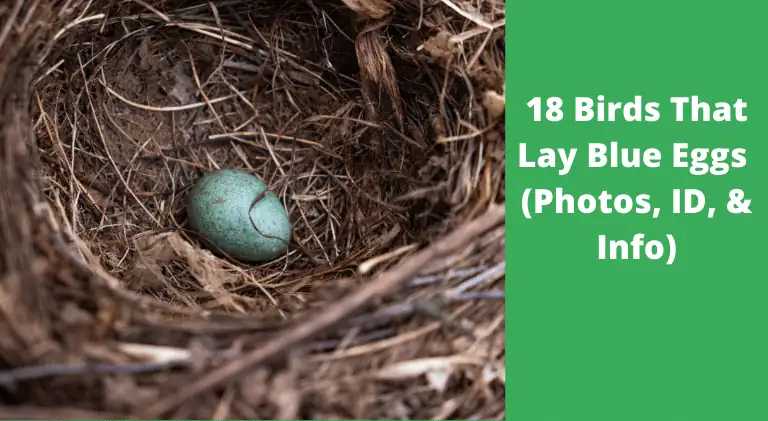Do Blue Jays Eat Hummingbirds? – Discover Facts!
The question of whether “blue jays eat hummingbirds” has been asked by many bird enthusiasts over the years. While blue jays are known to be omnivores, they do not typically prey upon other birds such as hummingbirds.
However, there have been some reports of cases where a blue jay may have eaten a hummingbird, its babies, or its eggs in certain circumstances.
So Do Blue Jays Eat Hummingbirds?
According to various anecdotal reports and scientific studies, blue jays have been observed eating hummingbirds. As hummingbirds are tiny and vulnerable, they may fall prey to blue jays seeking a quick meal.
This behavior may come as a surprise to some, but understanding the feeding habits of both birds is crucial. If you are interested in learning more about the behavior of blue jays toward hummingbirds then you have in the right place.
This article explains everything you have been looking for from the diet of blue jays to them raiding the nests of hummingbirds and eating their babies and eggs.
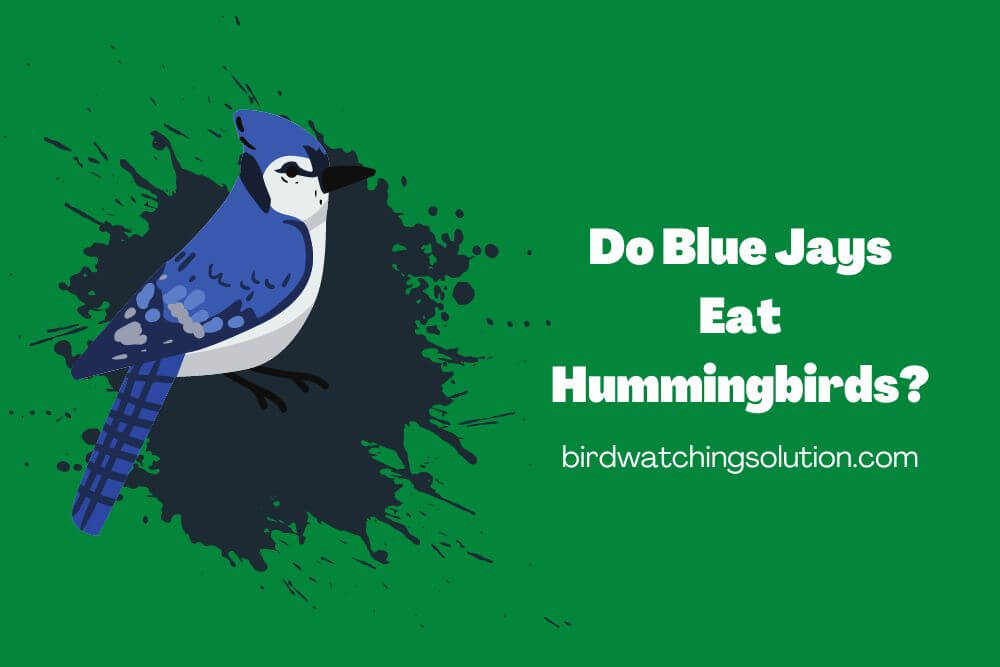
Do Blue Jays Eat Hummingbird Eggs?
The first question that most new birders ask on different platforms is whether blue jays eat hummingbird eggs or not.
The answer is, yes. Blue jays are known to raid hummingbird nests in search of the eggs that these birds lay.
Although hummingbirds build their nests in hidden locations, blue jays still find them an easy meal. The parents of a hummingbird nest may be off searching for food, leaving the eggs vulnerable and exposed to predators such as blue jays.
However, it is important to remember that this isn’t always the case. Blue jays are opportunistic predators and may take advantage of an easy meal if they get the opportunity.
Apart from blue jays, most other predators such as cats and hawks will also go after hummingbirds, eggs, and babies.
How Do Hummingbirds Protect Their Nests
As you know they are one of the most vulnerable songbirds due to their smaller size and weight. This is why they have developed some amazing protective behaviors to keep their nests and babies safe from predators such as blue jays.
The hummingbirds will usually use camouflage to hide their nest, build it in difficult locations, use decoys or false nests, and even attack predators to protect their young.
Hummingbirds are also known for using distraction displays when a predator gets too close to their nest. They will try to attract the bird’s attention away from the nest by flying around or making loud noises.
These strategies may prove helpful against large birds like hawks but can’t always be effective against smaller predators such as Corvids like blue jays, crows, and other birds of the family.
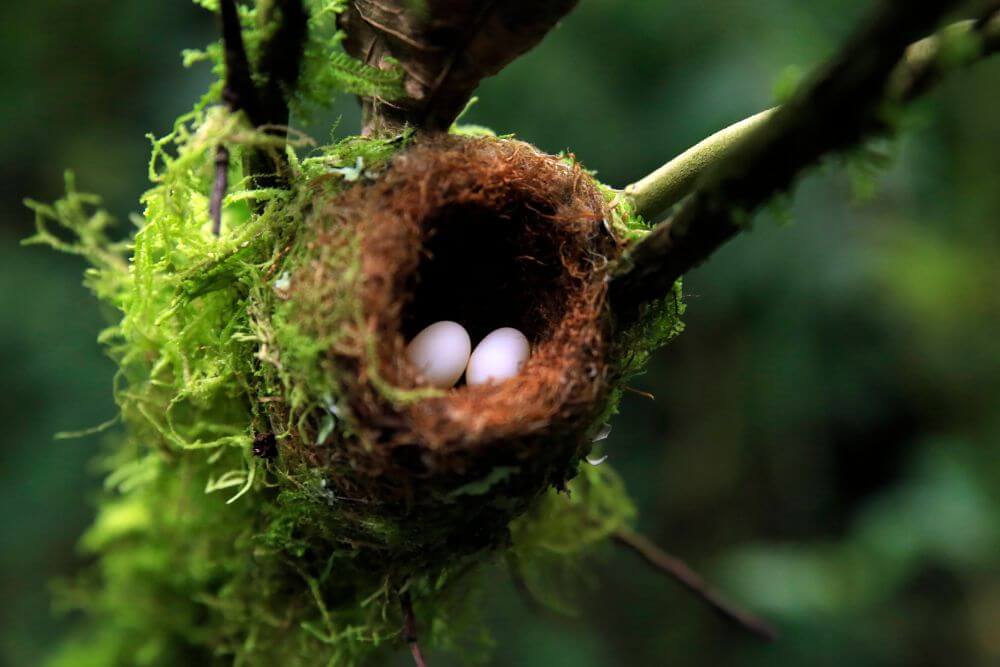
Hummingbirds Build Their Nests Near to Larger Birds
Another interesting thing that I have found about hummingbirds is that they build their nest near larger birds like hawks or crows.
This is believed to be a defensive strategy as the hummingbirds take advantage of these larger birds’ predatory behavior. By being near these predators, the hummingbird nests may get some protection from other smaller predators such as blue jays.
Furthermore, according to a study in 2008, Black-Chinned Hummingbirds have been found to build their nests near hawks which has a much more success rate of nests.
This is because the larger predator helps scare off birds that kill hummingbirds and steal their eggs.
Hummingbirds Test Nest Sites and Abandon Failed Nests
Another tactic that hummingbirds use to keep their nest safe is testing the nest sites before laying eggs.
It is believed that hummingbirds may use this behavior to check for safety as well as make sure the site has enough food sources nearby before committing to a long-term relationship with it.
If they find their nest raided by some predators such as blue jays, they may abandon the nest and build another one in a safer place.
However, if the nest is successful meaning that they don’t feel threatened then they will still return to the same nest and lay their eggs in it.
Can Hummingbirds Protect Themselves from Predators?
Hummingbirds are undoubtedly amazing creatures and they have some very interesting behaviors. However, one of the most important things to consider is whether or not they can protect themselves from predators such as blue jays.
The answer is both yes and no. Hummingbirds use a variety of strategies including camouflage, distraction displays, building their nests in hard-to-reach places and even attacking predators if necessary.
However, these tactics may only be effective against certain predators such as hawks or larger birds but may not be enough to defeat smaller ones like blue jays which can find the nest easily due to their sharp vision and intelligence.
Do Hummingbirds Fight Blue Jays?
Hummingbirds may try to fight or chase away blue jays to protect their nests but the outcome is usually not very favorable. Blue Jays are larger than hummingbirds and have sharp claws that can inflict serious damage on them.
Therefore, if a blue jay gets too close to a hummingbird’s nest, the bird should fly away rather than fight with a much bigger predator.
Hummingbirds rely on their speed and agility to evade predators but they also use various tactics to protect their nests from threats.
By building their nest near larger birds, testing potential sites, and using distraction displays, they can increase the chances of survival for themselves and their young.
What Do Blue Jays Eat? – Are They Carnivores?
Now that you have learned about the aggressive behavior of blue jays toward hummingbirds you might be wondering if they are carnivores and if they feed on other birds regularly or not.
Blue jays are known to be opportunistic feeders meaning that they will eat whatever is available to them at the moment.
They mostly eat fruits, nuts, insects, small animals, and eggs but they may also feed on other small birds like hummingbirds if given the opportunity.
However, they attack smaller birds if nothing else is available for them to feed on. They generally prefer feeding on nuts and seeds etc. This is why you may find them common guests on bird feeders and even in bird baths.
This is not just my observations there are proper studies about the blue jays’ diet. According to a study, 75.7% of their based on plant-based food, and the remaining portion includes small animals such as insects, small vertebrates, songbirds, and their eggs.
This means that while bluejays do attack hummingbirds, it is still not their priority if nuts and seeds are available.
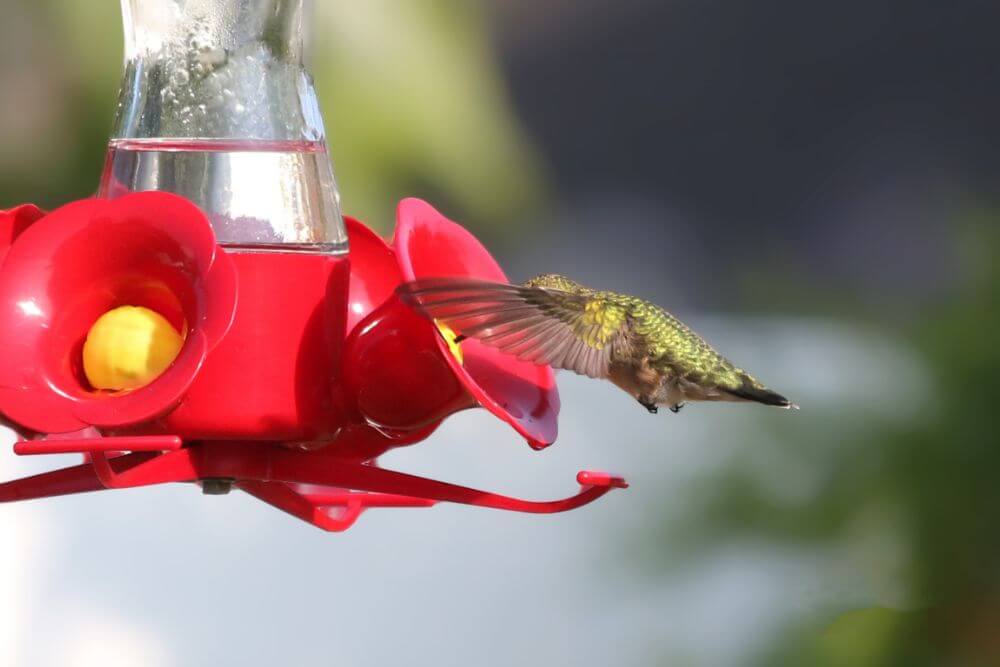
How Do I keep Blue Jays Away From My Hummingbird Feeder?
After knowing that blue jays do eat hummingbirds and their eggs most of you might be concerned about methods to protect their hummingbird feeders from these blue bully birds. Here are a few methods that can help you to keep bluejays away from your hummingbird feeder:
- Use physical barriers such as netting or bird spikes to prevent birds from accessing your hummingbird feeder. Netting should be placed around the entire area so blue jays cannot get near the feeders
- Place the hummingbird feeder far away from dense trees or bushes where bluejays might hide, wait, and ambush unsuspecting hummingbirds.
- Hang a hawk-shaped decoy near the feeder; this will scare off other birds but won’t harm them in any way. It will also help to keep bluejays away from the hummingbird feeder.
- Hang a bright light close to the feeder, as blue jays dislike bright lights and fly away when exposed to them.
- Position the hummingbird feeder at least 15 feet off the ground, as this is out of range for most birds including bluejays.
- Consider buying a specially designed anti-blue jay device like a Caged Hummingbird Feeder that prevents other birds from accessing your hummingbird feeders but still allows hummingbirds to reach them easily through the mesh netting of the cage design.
By following these simple tips you can protect your hummingbirds from being attacked by bluejays and ensure a safe, healthy environment for them to feed in.
Last Minute Thoughts!
In this article, we talked about whether blue jays kill and eat hummingbirds or not and what they feed on mainly. We also discussed some of the ways that you can keep bluejays away from your hummingbird feeder and protect them from any harm.
Remember, although blue jays may sometime attack hummingbirds for food, it is still not their priority and they generally prefer to feed on nuts and seeds instead.
So make sure you provide them with plenty of other options and use the tips above to protect your hummingbirds from being attacked by these notorious bully birds!
Good luck!

